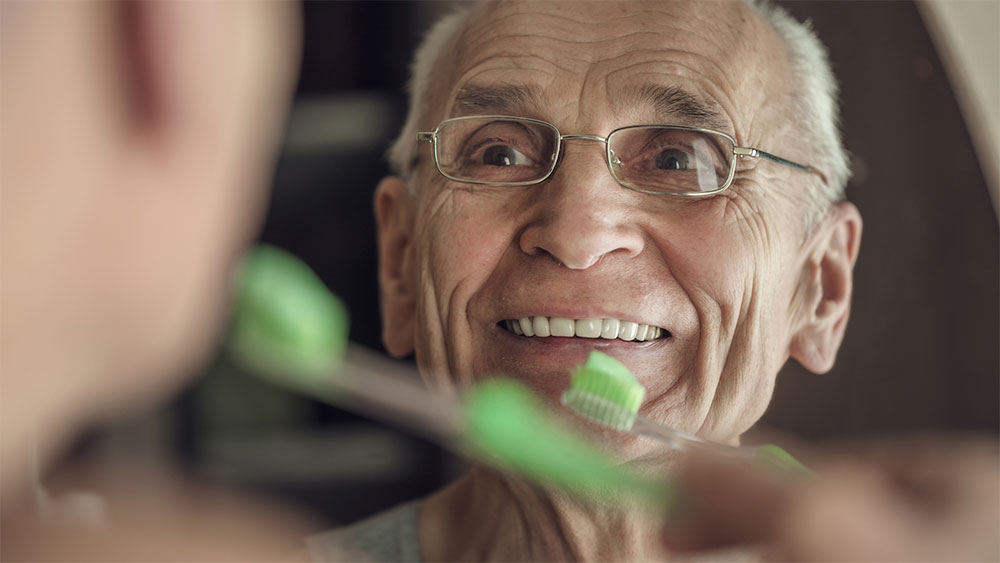
Maintaining good dental health habits are important for older adults with dementia.
It’s among the first things we do every morning, as well as one of the final things we do every night, usually on autopilot without giving it an extra thought. Yet it happens to be a complex process comprised of multiple steps, making this seemingly simple task quite a challenge for a senior with dementia.
Proper dental health is critical for all of us, irrespective of age, and not only to keep our gums and teeth in tip-top shape. Poor dental hygiene may bring about serious health problems, such as heart disease, stroke, osteoporosis, respiratory disease, and a variety of others. It may also affect our ability to talk and eat.
Dental Health for Seniors With Dementia
So how are you able to ensure a senior loved one with dementia maintains good oral hygiene? These tips, from Hearts at Home In-Home Care, the experts in aging in place in Kansas City, will help:
- Modeling is an excellent approach to help a person with dementia through a multistep process like brushing the teeth. Encourage the person to perform each step on their own if possible: placing a tiny amount of toothpaste on the brush (baking soda toothpaste is preferred over fluoride, in the event the senior swallows it), lifting the brush to the mouth, and moving the brush side to side and up and down over all of the teeth’s surfaces.
- For an individual who needs help, provide a toothbrush with toothpaste already applied, stand behind the person, and place your hand over theirs, beginning the motion of brushing for them.
- If holding the brush is difficult, there are longer-handled toothbrushes available, or, cut holes in a tennis ball and push the brush through, giving the individual something larger to hold onto. A battery-powered toothbrush is also an excellent option to try.
- Flossing is also an important part of dental hygiene. For independent flossing, try floss holders or other tools designed to make it easier and more efficient. If you’re flossing the older adult’s teeth, again, standing behind the individual may be easiest.
- If the senior has dentures, make sure to remove, brush, and rinse them daily. While the dentures are removed, a soft-bristled toothbrush should be used to gently clean the older adult’s gums and roof of the mouth.
Don’t Forget the Dentist
If possible, find a dentist who is skilled in dementia dental care. A senior loved one with dementia should continue to receive routine dental exams, which include checking dentures to make certain of a correct fit and to rule out any issues with the teeth or gums. An older adult with dementia who’s not able to communicate dental pain or discomfort may exhibit signs such as:
- Touching the jaw or cheek, or rubbing the affected region
- Rolling or nodding the head
- Resisting any hygiene in the vicinity of the area, including washing the face or shaving
- Sleeping difficulty
- Aggression, yelling, or moaning
- Resistance to putting dentures in
If some of these symptoms are noted, schedule an appointment with the dentist right away.
For more information on private duty home care in Kansas City and the surrounding areas, connect with Hearts at Home In-Home Care at 913-440-4209. Our compassionate care team is standing by to provide expert advice about dental health for seniors with dementia, as well as other aging care needs.
